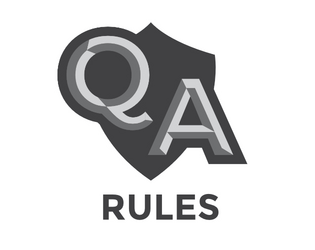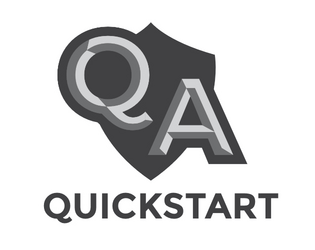Sure thing! I forgot to mention, the soundtrack for the evening was the score from Longlegs. Created the perfect creepy vibe!
Quest & Answers: A Trivia Based TTRPG
Creator of
Recent community posts
I ran it for my wife last night. For background, she enjoys investigative and horror games, prefers one-on-one play, and loves most of the media that inspired Midnight of the Century (though not, notably, Millennium). Her favourite TTRPGs have been Quietus (FitD based horror for 2-3 people) and Cthulhu Confidential (GUMSHOE one-to-one mystery).
I'll answer some of your specific questions first, then break our feedback down to rules and mystery.
- How many players did you have? Just me as Warden and my wife as player.
- What Specialisms did they choose? She was a profiler.
- What investigation did you run? The Widening Gyre.
- How did the investigators use their skills, general and specialist? I provided the Glimpse visions when the adventure noted them, and suggested that she create a profile of the killer at one point in the case. No general skills were used.
The Rules:
Rules were clear and easy to use. As Warden, I particularly enjoyed the use of Shifts to handle time, it provided enough structure without getting bogged down. Our session spanned two full days. The first time we hit a fourth shift my wife chose to rest and pick up the investigation the next morning. But on day two she knew about Nick's cabin and chose to push on into phase four. It created tension having the effects of exhaustion looming over her (although she didn't end up needing to make any saves in the final scene). I also liked how WILL loss was tied to stress/failed saves, it added a sense of growing dread, and using the connection as a way to replenish it created an opportunity to flesh out that relationship and insert some straight roleplay into the session.
I'm not sure how the MIND stat gets lowered. BODY is clearly the result of doing something physically dangerous, and WILL is tied to stress. There are probably fractures that affect MIND, but other than that what kind of save would you make that would lower your MIND? I only ask because there's a mechanic for restoring MIND so it follows that there should be things that decrease it.
Once character generation was done I think my wife only rolled dice one time in the entire session (a failed attempt to break into James Locan's car). Having played some GUMSHOE I'm a fan of the 'you get the clue without rolling' philosophy, but there didn't seem to be a lot of situations that called for a save under the definition of 'a dangerous action' (the only reason I called for one with the car was the danger of someone thinking she was a car thief). So from wife's perspective I was really just giving out clues for her to follow and roleplaying the reactions of witnesses she interviewed (I did roll on the reactions table for one). She never chose to resist the Glimpses (just took the stress cost) so she didn't have to roll there (more on that below) and when the time came to face the killer she wisely brought the police and stayed out of the way. When we played Cthulhu Confidential I'd say the session was about 4 hours and we rolled dice a half dozen times. That felt like the sweet spot where it was mostly RP but there was enough uncertainty that we had to let the dice decide on several occasions. This is probably more a comment on the mystery than the rules themselves, but the limitations on what actually calls for a roll were definitely a factor.
I wonder if this game could employ some element of Cthulhu Dark's investigative philosophy: you always get the clue, but depending on your roll you either get the bare minimum, the full clue, or more than you bargained for. Maybe a critical success, not a critical failure, triggers a fracture? Or a success that's right on your stat does? I think the idea of seeing too much because you rolled too well would carry over really well to this game, but I'm not sure the best way to implement it.
My wife didn't like that she had to pay stress to use her special ability. I told her it was her superpower and having/using it was stressful. She accepted that, but felt like if it's this character's gift they shouldn't be penalized for using it. I think a possible solution would be to drop the idea of resisting the vision and have the player always make a MIND save after a glimpse and only accrue stress if that save fails. Especially when it's not a specialist skill they choose to employ (rules say they happen automatically), it feels like gaining stress should be the result of a failed save just like any other skill.
Overall, she felt the game was "too easy". When I asked what she meant, a lot of her issues came down to the fact that she could rely on Seattle PD to help out (I took the fact that they had called in Oroboro as meaning she was leading the investigation -- she used that role to order uniforms to track down leads, bring it witnesses, secure crime scenes, etc.). Compared to Cthulhu Confidential where she was a lone investigator it sounds like she thought her character here had too many resources to draw from. This could be me misreading the game's intent, or it could be that a built-in antagonistic relationship between Oroboro and local authorities would make for a better experience.
The Doom Phases were easy to track based the timeline provided, but no saves were made after the stress cost went up so there was no mechanical effect. From the wording it the rules I almost got the impression that the Doom Phase raised the difficulty on saves, but that didn't seem right since then you'd be adding 1 to every save during the first phase, and it didn't end up mattering because as I said no saves were rolled later in the game. I think that needs to be clarified though, because the rules talk about Doom Phases increasing in difficulty and I think you mean they increase in severity.
I wonder if the Doom Phase could raise the threshold for a critical roll? Let's say you did make a fracture happen on a critical hit. As the Doom Phase increases, the roll for a critical goes from 1 to 1-2 to 1-3 and so on.
The Mystery:
As we talked through what she liked and did not like about the game, a lot of my wife's issues were actually based more on the mystery than on the rules. It is entirely possible that this was my fault as Warden, but at a minimum I think some details could be made clearer. For example:
James Locan's wife reports him missing Monday night. Tuesday morning when searching the house the bed is made and his suit is laid out. This confused my wife, and made her think the wife was hiding something. Also, we're told Janet is staying with her parents. I read this as she went there because she's distraught her husband is missing. But if she's supposed to be out of town, how would she know her husband didn't come home Monday night?
The polaroids of women in James' desk feel too much like a clue not to lead anywhere. My wife had Seattle PD tracking down every woman they could and bringing them in for questioning! Also, whenever she met a woman (the waitress, Nick's wife) she expected one of them to be among James' conquests. I get that James is just a creep in general, but if you put something that notable inside a locked drawer players are going to assume it's crucial information, and it's not even a useful red herring. If Leah is in one of the polaroids, and their relationship predates the meeting at Carter's, then there's a push to find her first (and maybe even suspect her).
Finding Nick and Leah was maybe too easy (phone numbers + police resources seems like it would be possible to have addresses by next shift) and nothing in the mystery addresses what happens if the cops go to Nick's before he starts stalking Leah. I played up Betty's refusing to pick up the phone or answer the door as long as it was reasonable, and Leah was interviewed and released THEN stalked and kidnapped by Nick, but it felt like I had to stall the investigation to keep it from wrapping up in Doom Phase 1 (there's enough evidence in Nick's house to derail the whole apocalypse very early on).
Both of us really liked the details of the case, the gruesome nature of the killing, and the overall vibe -- the mystery itself just feels like it needs to be a little tighter.
Final Thoughts:
Midnight of the Century checks a lot of boxes for me. Hell, any game that references Nowhere Man in its list of inspirations is a must-have. I like the simplicity of the rules and the concepts of Doom Phases, Shifts, and Injects. I expected it to be a hit with my wife based on her love of serial killer stories and one-on-one TTRPGs. She had fun, but compared to Quietus (the first game she's ever said she wanted to play again after finishing) and Cthulhu Confidential (a game she told me she could "play every day of the week") Midnight of the Century did not wow her the way I expected. But when I told her it was still in development and that this was a demo game she expressed interest in playing a finished version. I look forward to updates as they come, and might try my hand at creating a mystery of my own.






